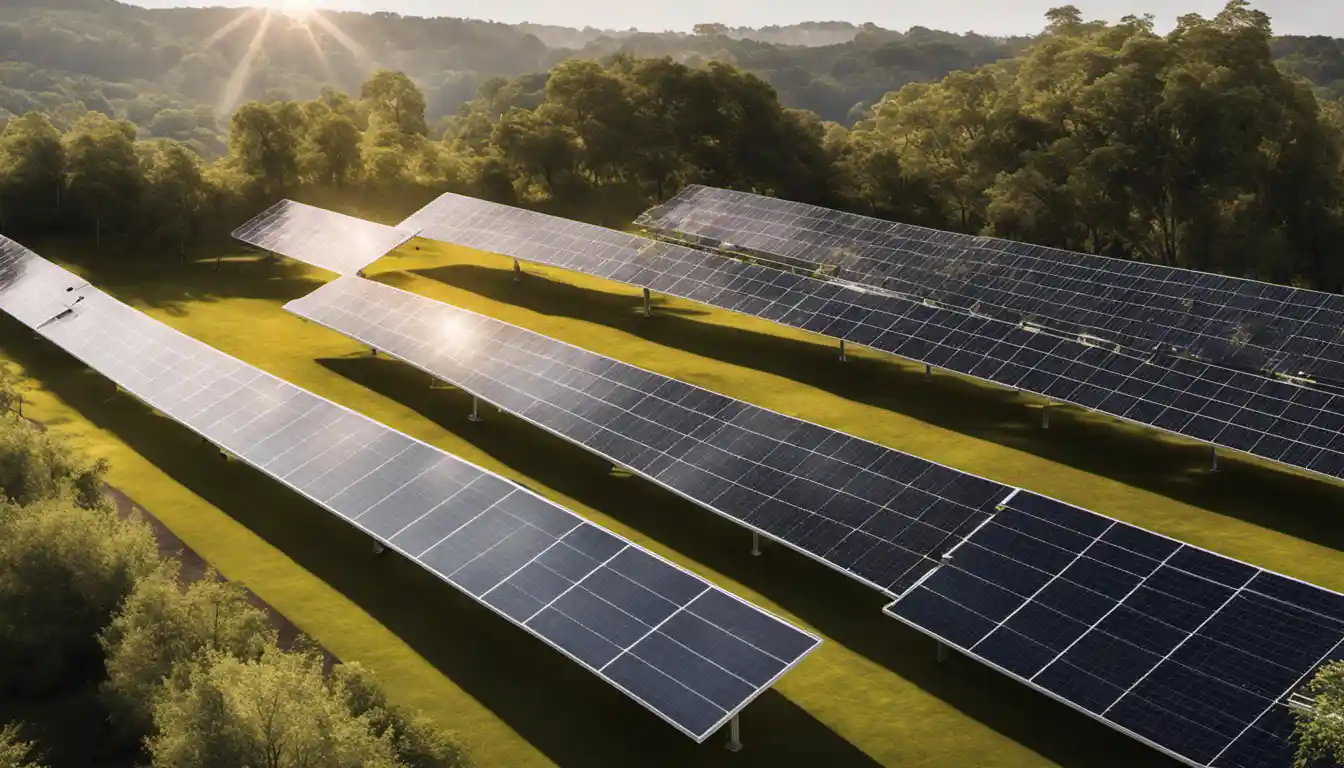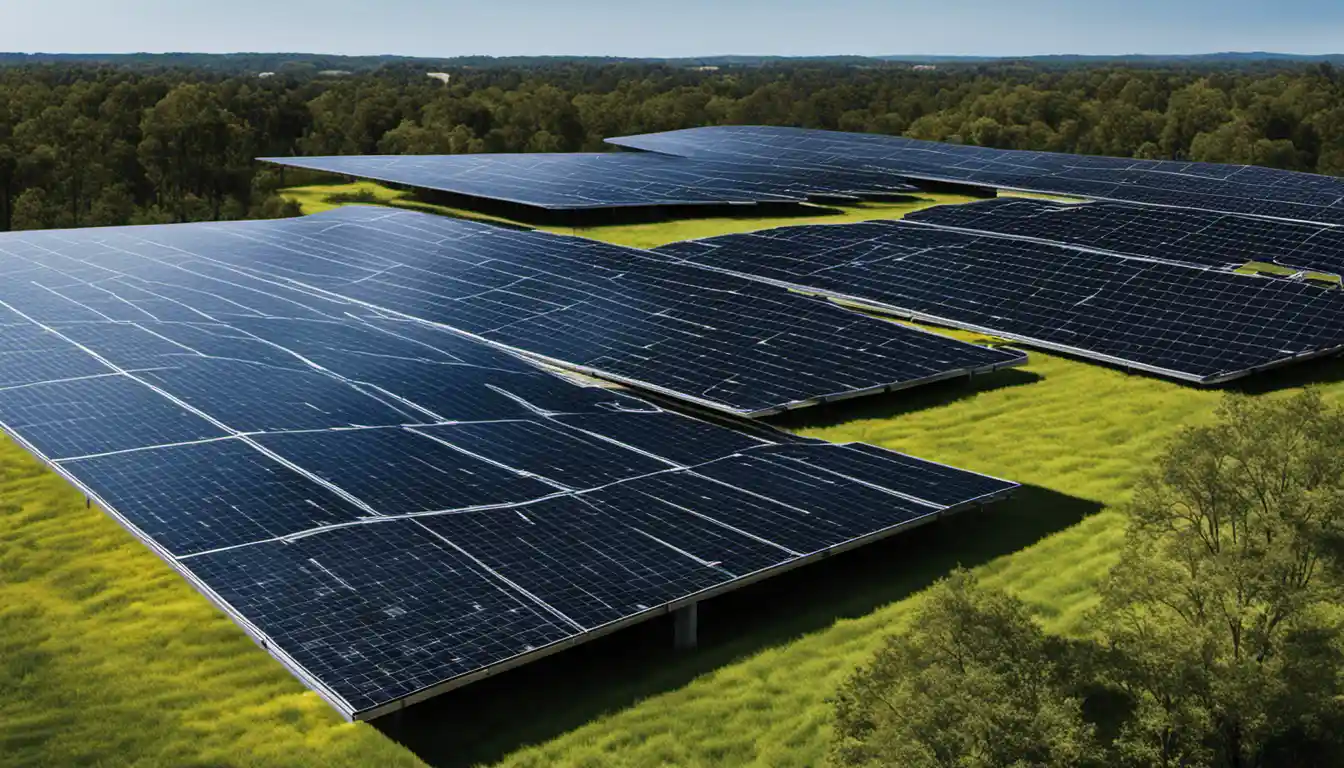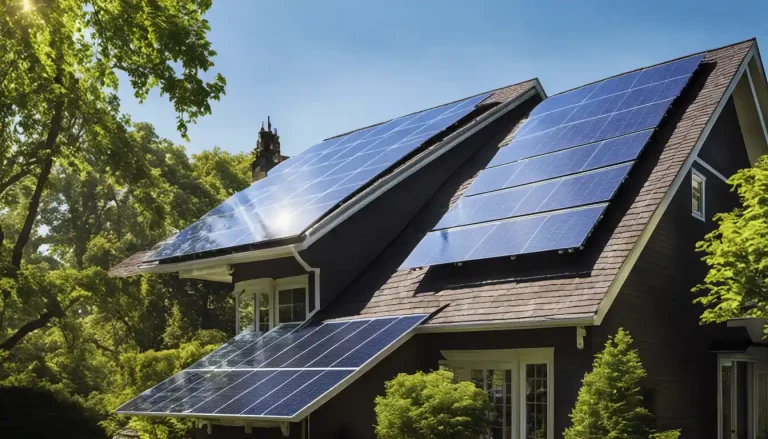Solar Panel Leasing Explained
Leasing solar panels allows users to access sustainable energy without the high upfront cost of purchasing and installation; additionally, maintenance is typically covered by the leasing company. However, it may not provide the same return on investment as ownership because users won’t receive the solar tax credits and might have to deal with long-term financial obligations or complications when selling their house.
How Does Solar Panel Leasing Work?
Leasing solar panels is analogous to renting. In this arrangement, a solar company installs panels on your property, and in exchange, you pay a monthly lease payment. Most solar leases are 20 to 25 years long, reflecting the long lifespan of solar panels.
One might wonder how does solar leasing work in terms of maintenance and repairs. Generally, the solar company is responsible for all maintenance and repairs during the lease, on the grounds that, technically, they still own the panels.
What Is a Solar Panel Lease?
A solar panel lease is undoubtedly a long-term contract between a homeowner and a solar company. As part of the terms, the solar company installs and maintains solar panels on your property, with the homeowner agreeing to pay a fixed monthly fee for the solar power generated.
Pros of Leasing Solar Panels
So, what is it about this option that’s appealing? Let’s look at the benefits of leasing solar panels.
Avoidance of Upfront Costs
Solar panel installation can be quite costly. When leasing solar panels, you can avoid this huge upfront expense. The solar company will bear the cost of purchasing, installing, and maintaining the hardware.
No Installation and Maintenance Fees
Beyond the cost of the solar panels themselves, installation and maintenance can require a significant investment. Leasing the solar panels means the leasing company covers these costs, reducing the burden of out-of-pocket expenses.
Lower and Greener Energy Bill

Solar leases typically come with locked-in, lower rates for energy, saving you money over the term of the lease. Plus, you are using clean, renewable energy — it’s a win-win for your pocket and the environment.
No Tax Liability
With solar panel leasing, the leasing company takes credit for any government incentives or tax advantages like the solar Investment Tax Credit (ITC), leaving you unburdened by additional tax obligations.
Cons of Leasing Solar Panels
However, everything comes with a flip side. Let’s delve into the disadvantages of leasing solar panels.
Higher Cost in the Long Run
In contrast with purchasing panels, leasing can turn out to be more expensive. This is because you’ll continue to pay lease payments throughout the lease’s term which usually extends for 20 to 25 years.
Missed Opportunities for Rebates and Tax Credits
The leasing company captures the financial benefits of government incentives tied to solar panel ownership, such as the ITC. So, although leasing means no tax liability, it also means missing out on some potentially sizeable financial incentives.
Potential Deterrence for Future Homebuyers
If you decide to sell your home down the line, a long-term solar lease may deter some buyers who aren’t interested in taking over the lease. Alternatively, you might have to pay a hefty fee for early termination of the lease.
Reduction in Savings Potential

Since solar companies absorb the cost of installation and maintenance, they also take a portion of the savings generated by the solar panels. This could be a significant amount over the lease’s lifespan.
No Increase to Your Property Value
Unlike owned solar panels, leased ones don’t increase your property value, which could be a key factor to consider if you intend to sell your home down the line.
Considerations for Early Termination of Solar Leases
Before committing to a solar lease, it’s important to understand what can occur if you decide to end the lease early. This could include hefty termination fees or the requirement to purchase the solar panels outright.
Comparing Solar Financing Options
The choice between purchasing, leasing, or choosing a PPA (Power Purchase Agreement) will depend on a variety of factors unique to each homeowner.
Differences Between a Solar Lease and a Solar Power Purchase Agreement (PPA)
Solar leases and PPAs may seem similar; however, there are some key differences. In a PPA, you pay for the electricity the system generates, not a fixed lease payment. This can provide more substantial savings but leaves you more susceptible to fluctuations in your energy bill.
Solar Loans Vs. Cash Purchase
Purchasing solar panels, either with cash or through a loan, might bring you larger long-term savings as compared to leasing. You will, however, bear the upfront installation costs and maintenance costs, plus loan interest if you choose to finance through a loan.
Choosing Between Solar Leasing and Buying

To conclude, both options come with their unique pros and cons of solar panel leasing or buying.
Factors to Consider When Deciding to Lease or Buy Solar Panels
When you’re deciding whether to lease or buy, you’ll want to consider your budget, the maintenance costs, your eligibility for tax credits and rebates, and the expected increase in your property’s value.
How Solar Leasing and Buying Impact Your Long-Term Savings
While solar leasing might provide savings in the short term by eliminating upfront costs, purchasing solar panels could potentially offer more significant savings over the long run as you enjoy the benefits of government incentives and increasing property value.
Frequently Asked Questions About Solar Panel Leasing
To wrap things up, let’s address some common questions about the pros and cons of solar panel leasing.
Is It a Good Idea to Lease Solar Panels?
The answer depends on your situation. If you can’t afford the upfront costs or don’t want the responsibility of maintenance, leasing could be a good option for you.
What is the Downside of Leasing Solar Panels?
While leasing can make solar power accessible, the potential long-term financial benefits of solar panel ownership are transferred to the leasing company. This includes tax credits and rebates, as well as the addition to your property’s value.
How Do You Know if Solar Panels are a Good Investment?
To determine if solar panels are a good investment, you should perform a cost-benefit analysis. Consider factors such as your energy costs, how much sun your property gets, and the terms of leasing or buying options available to you.
That concludes our guide on the pros and cons of solar panel leasing. Remember, every situation is unique. The right choice will be one that aligns with your financial capabilities and long-term ambitions.



